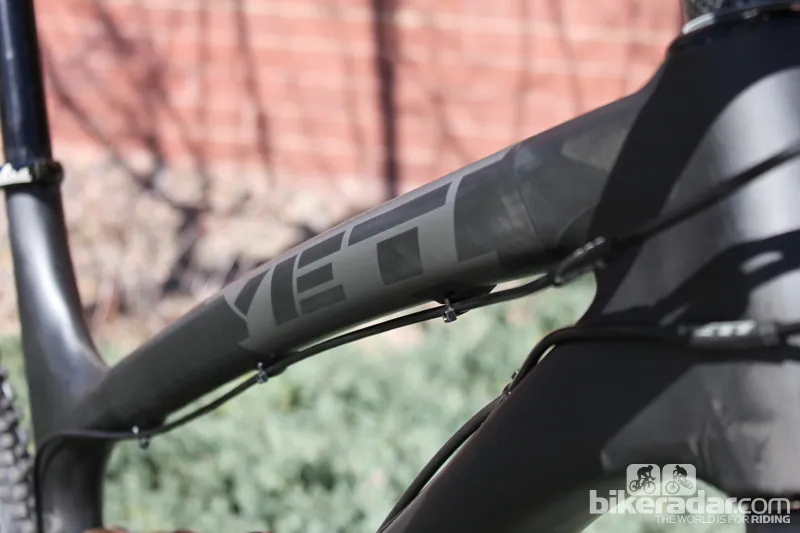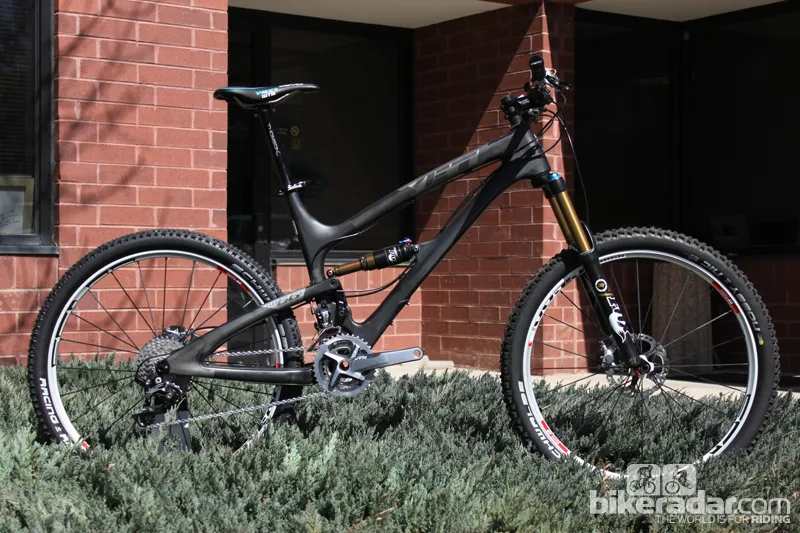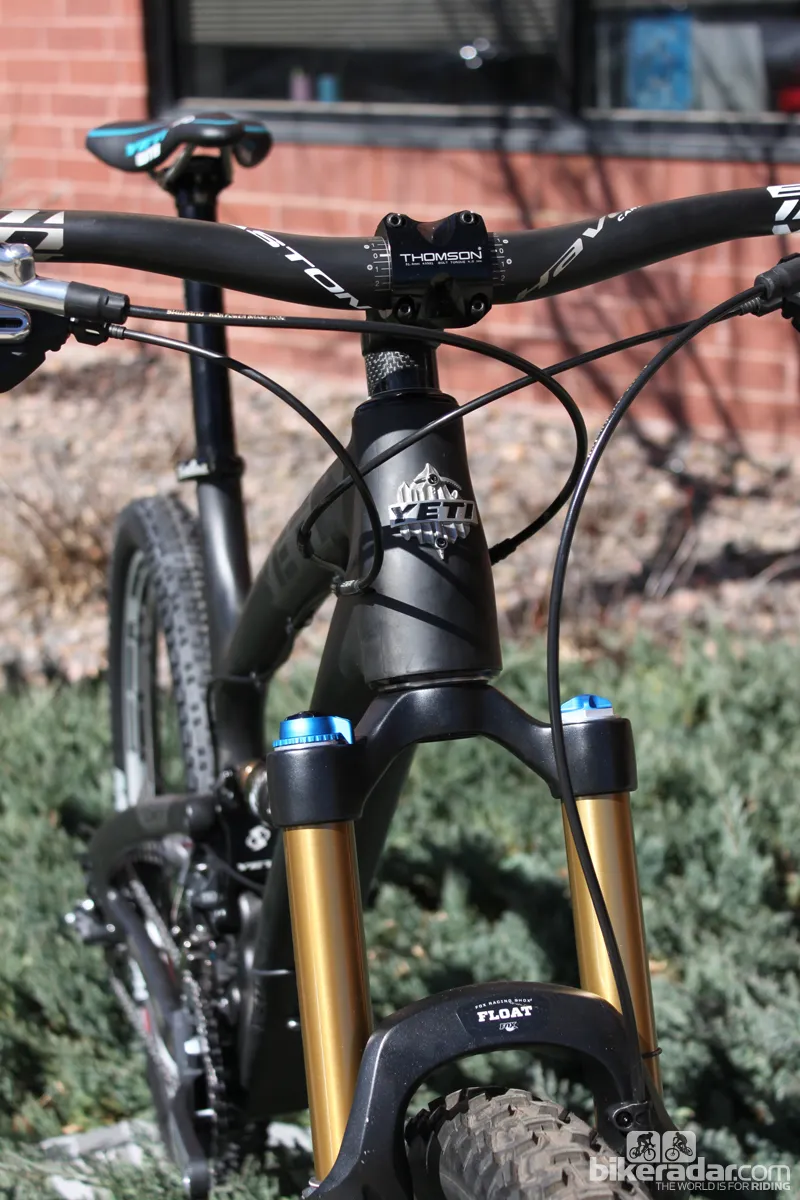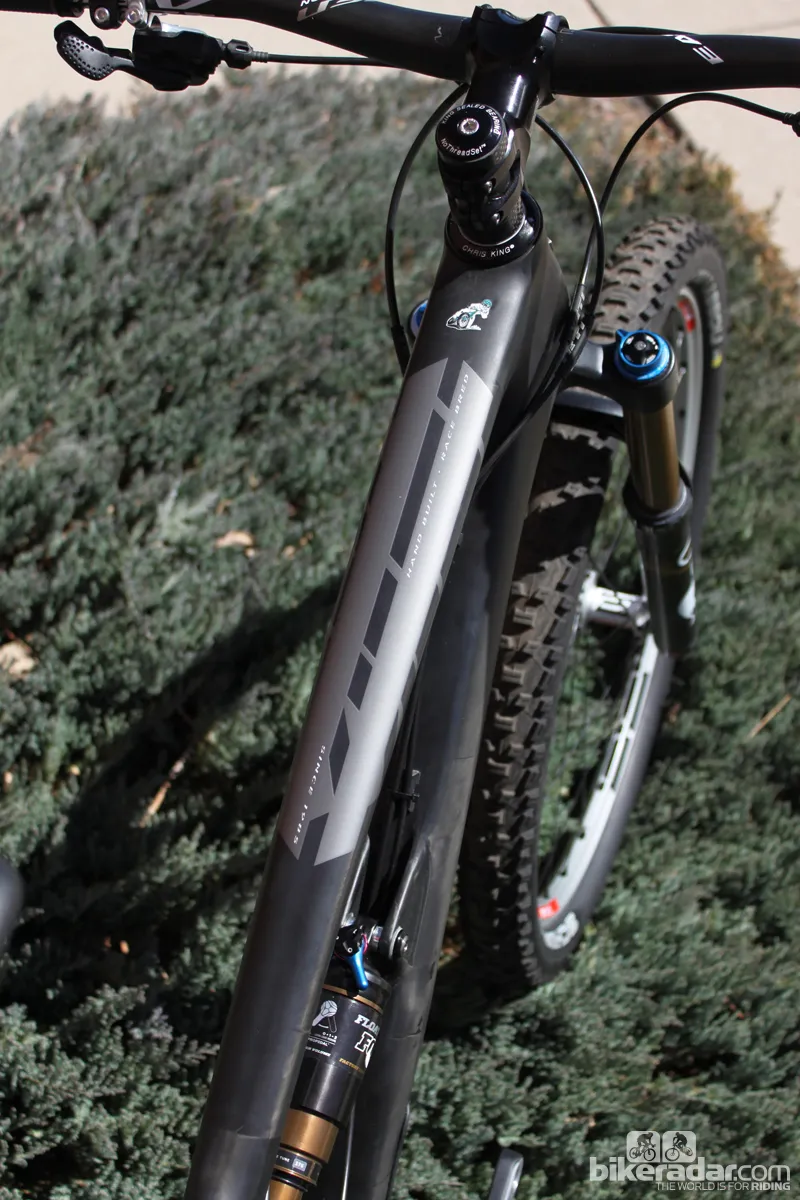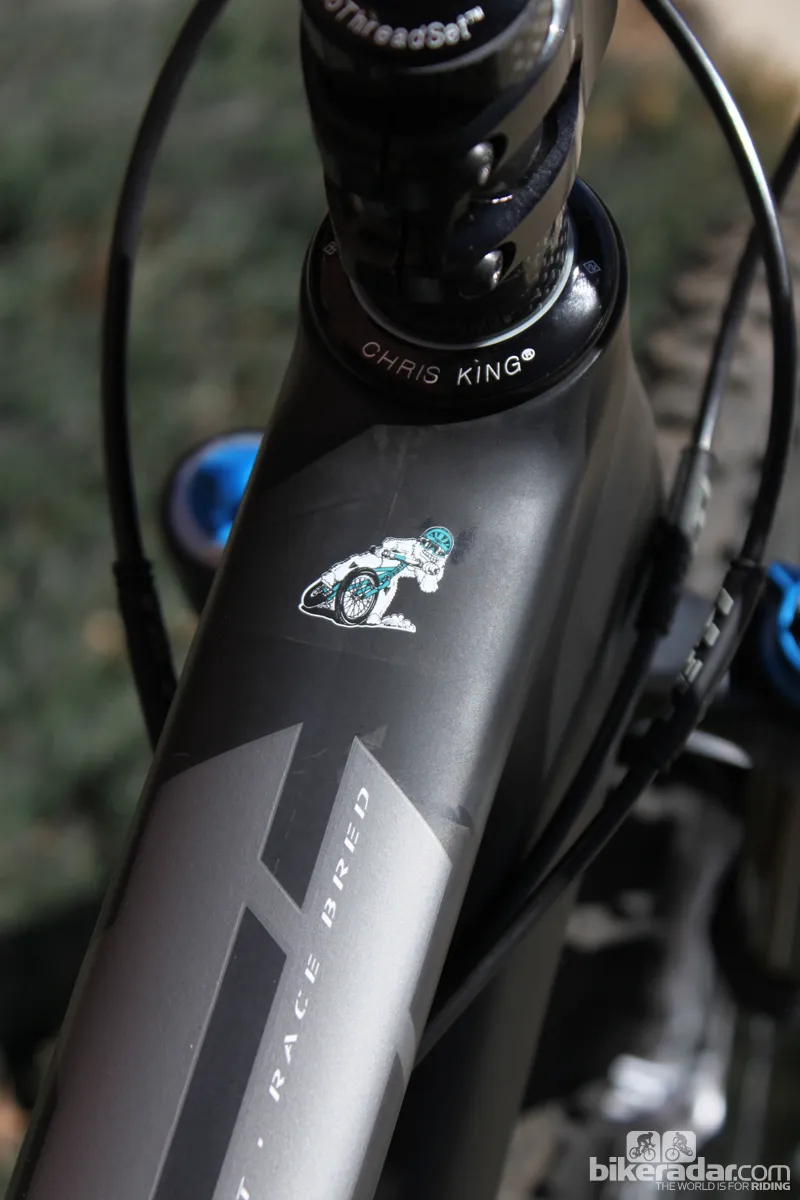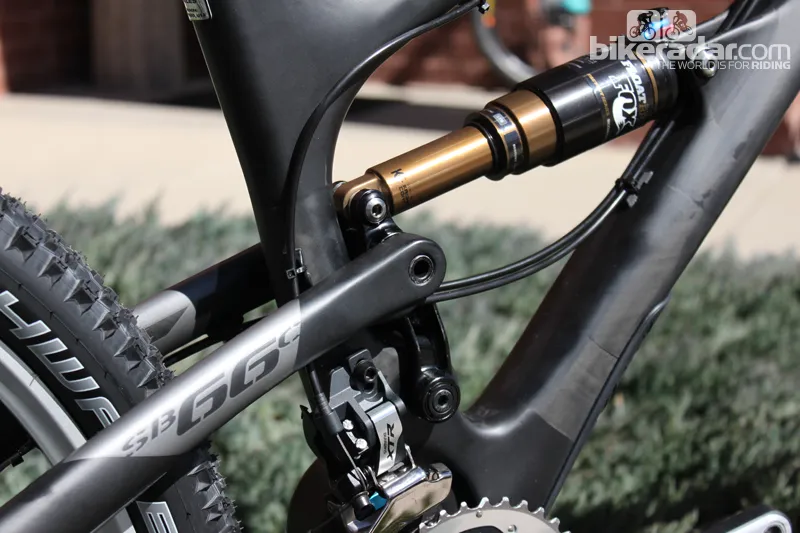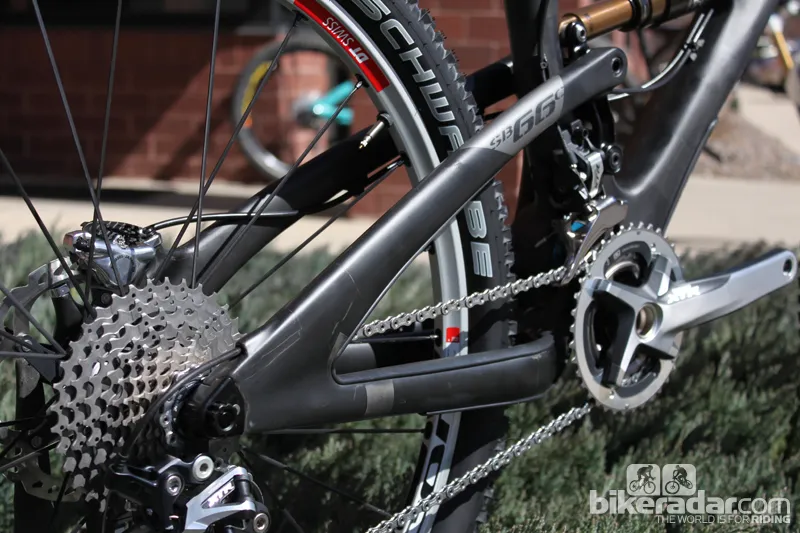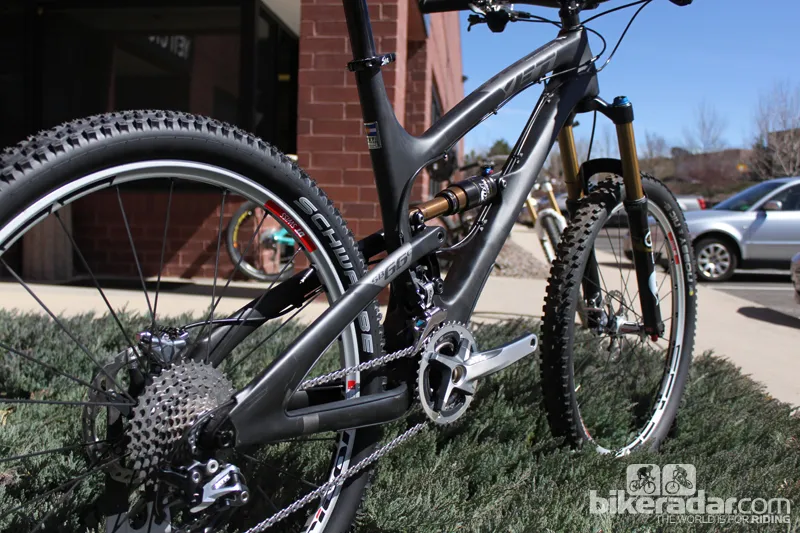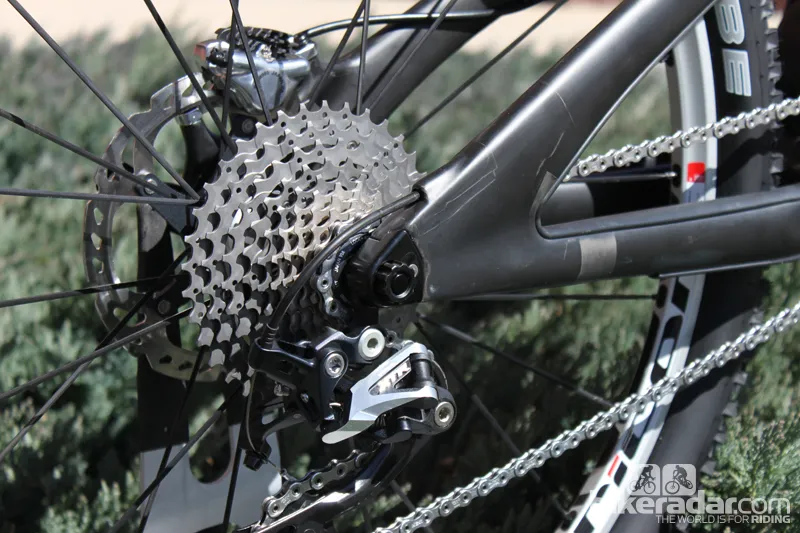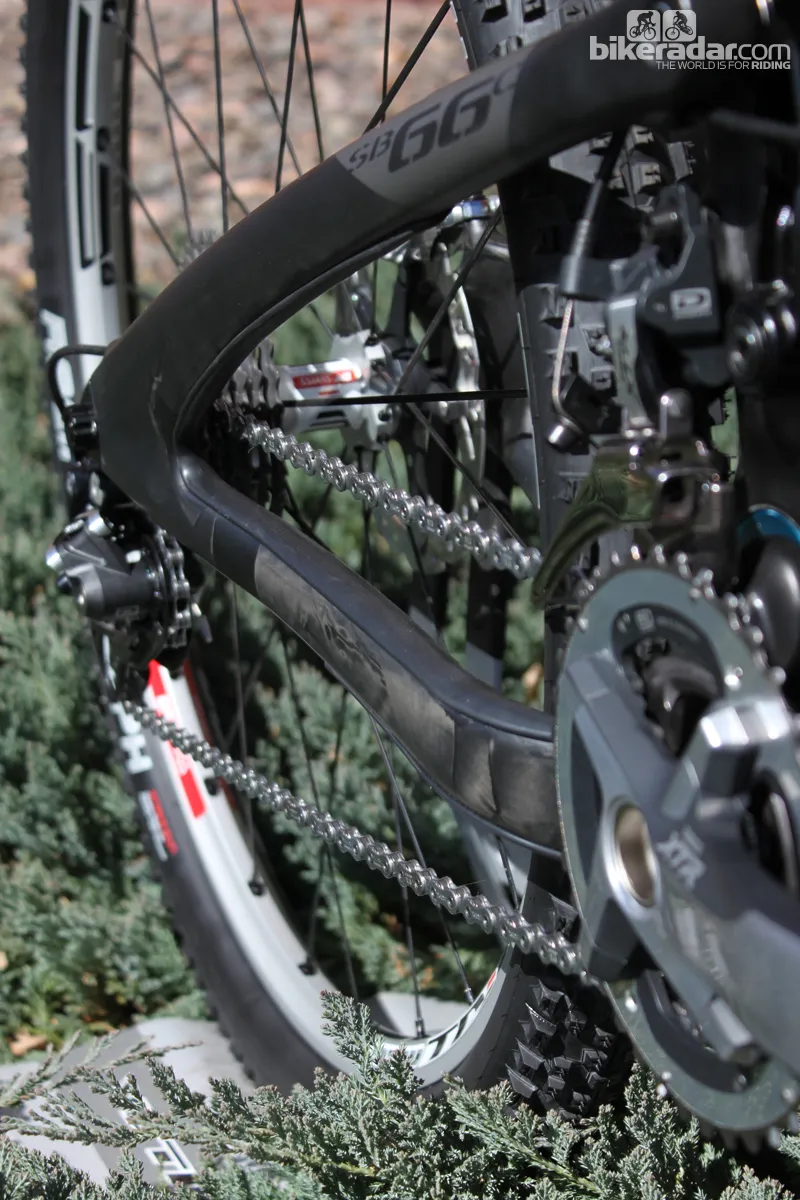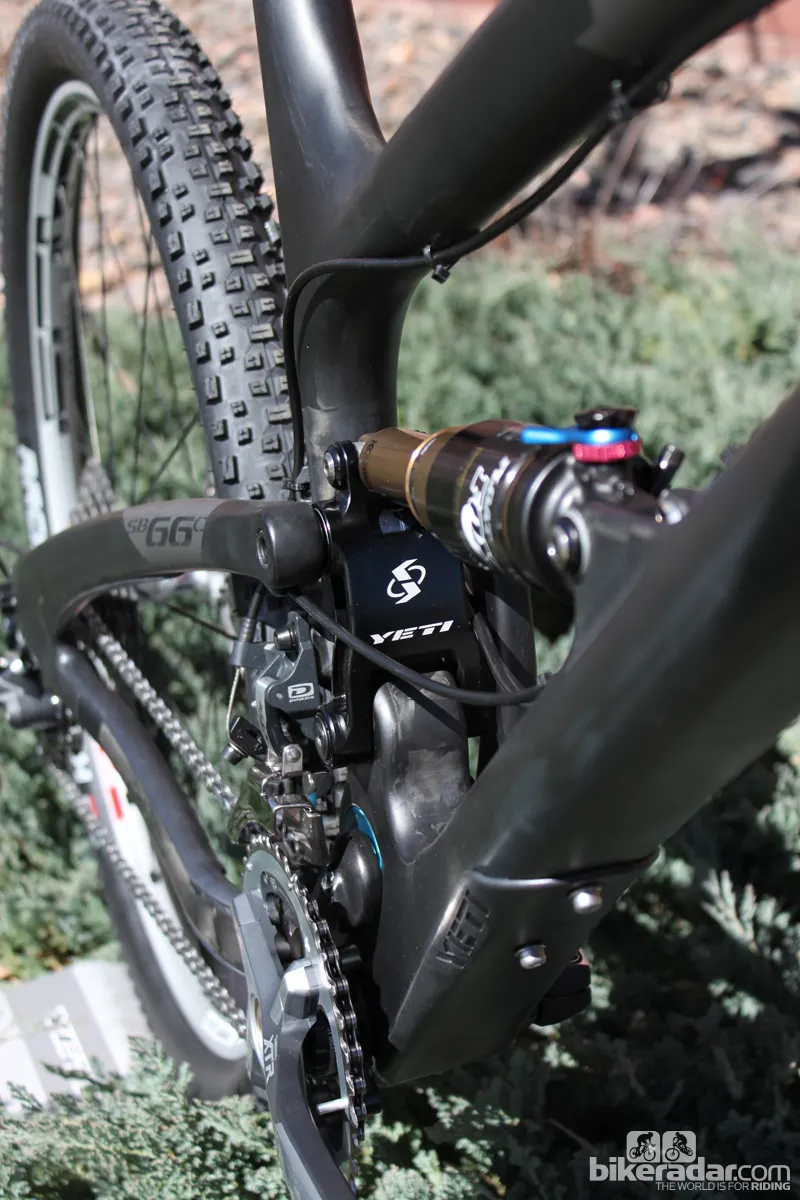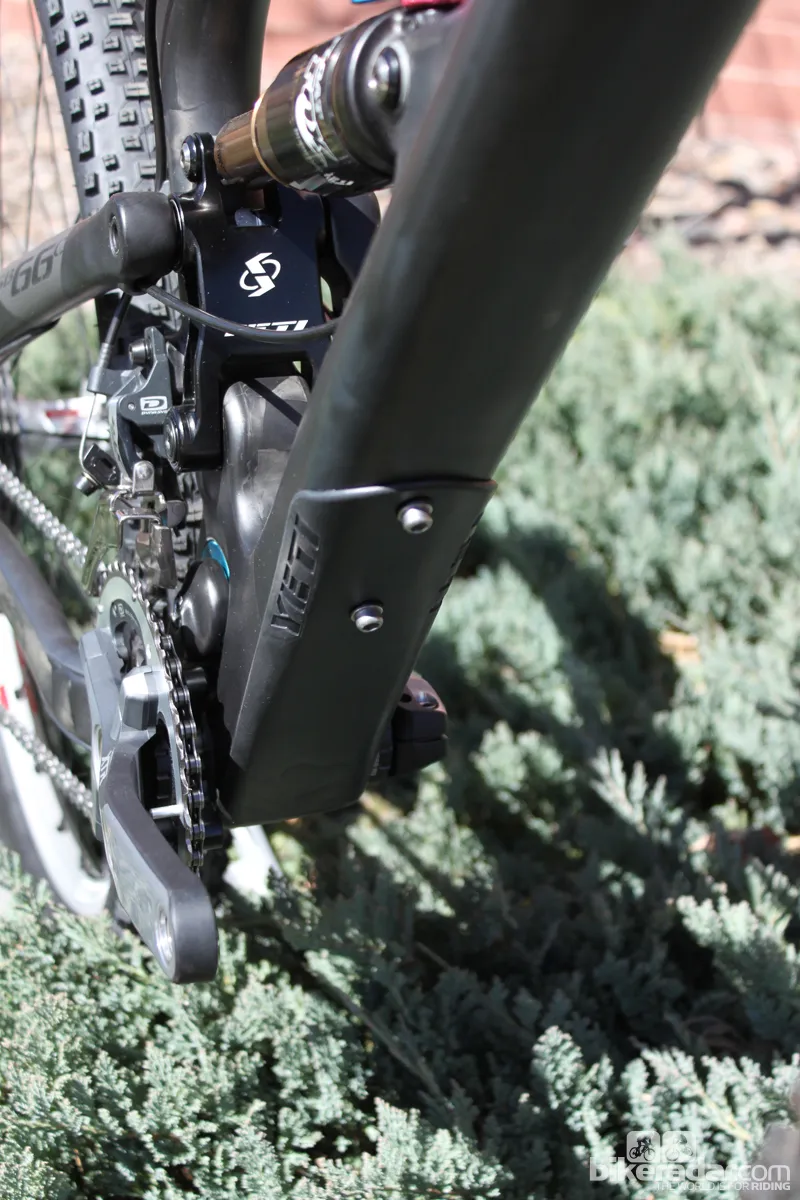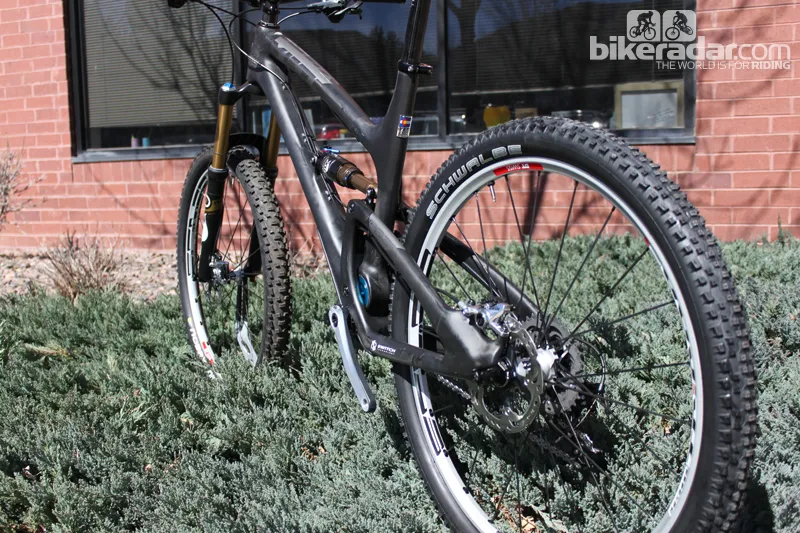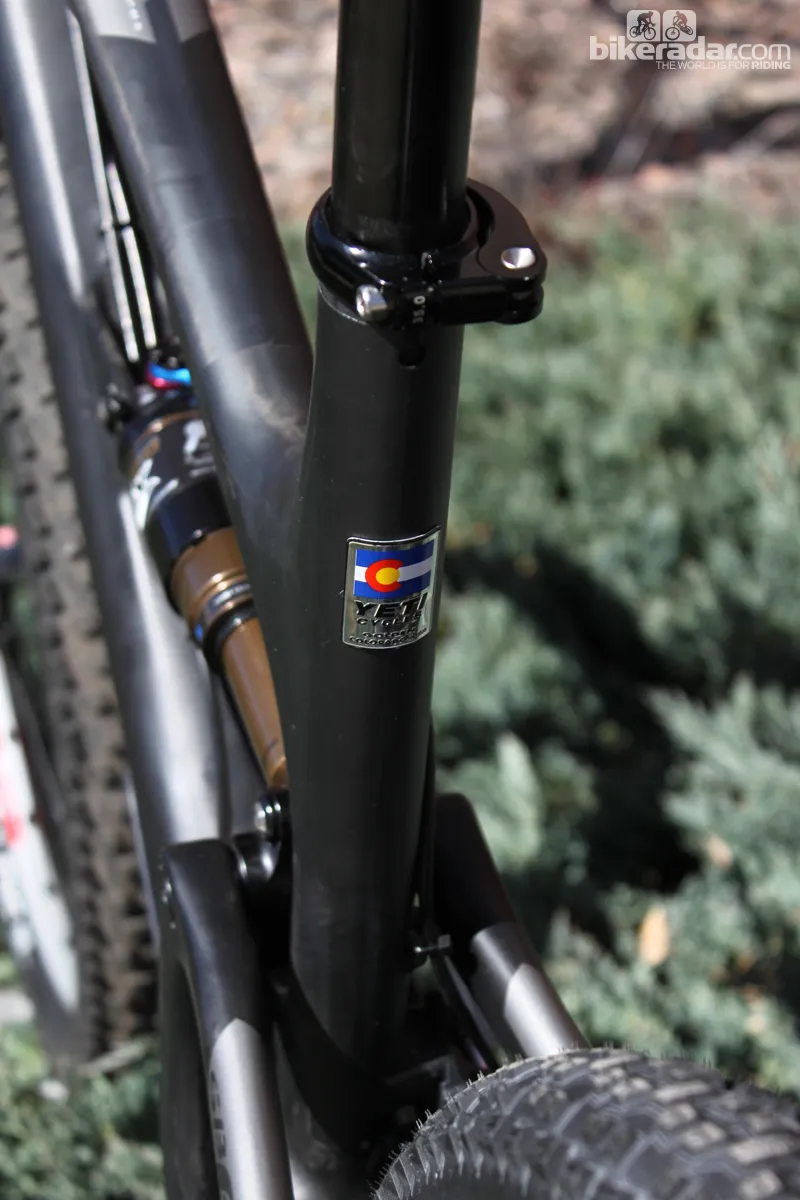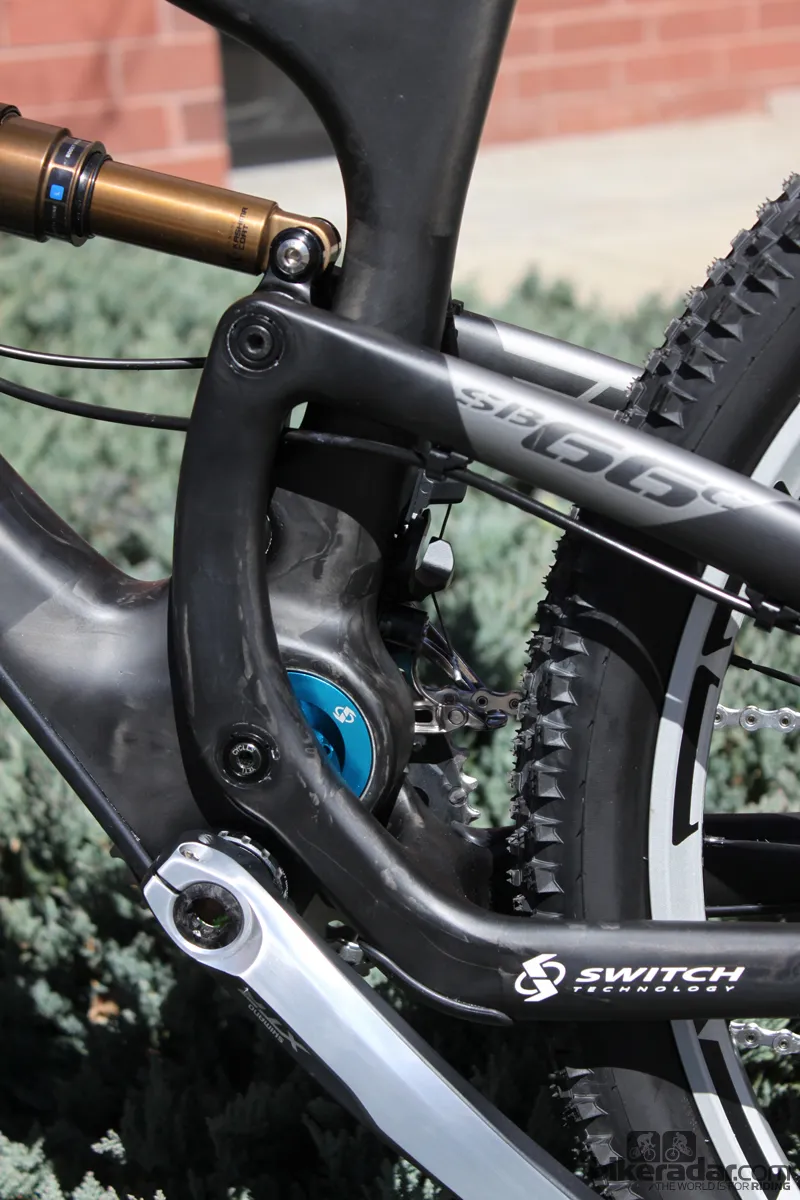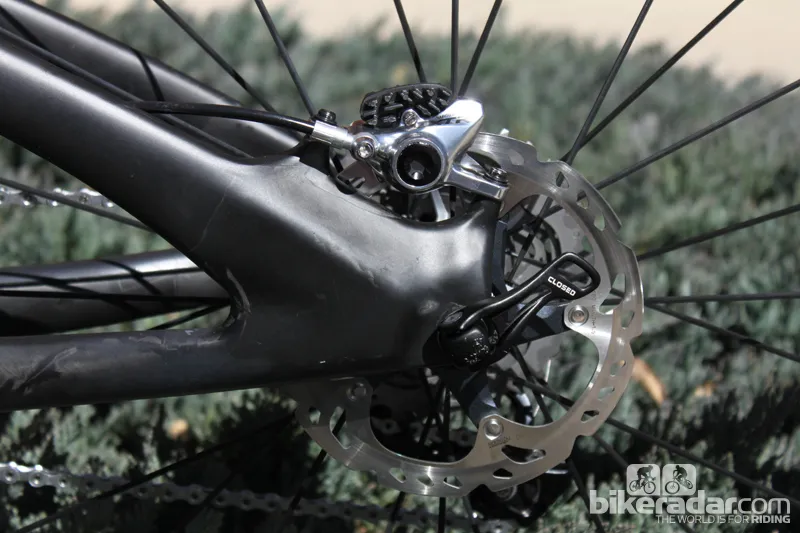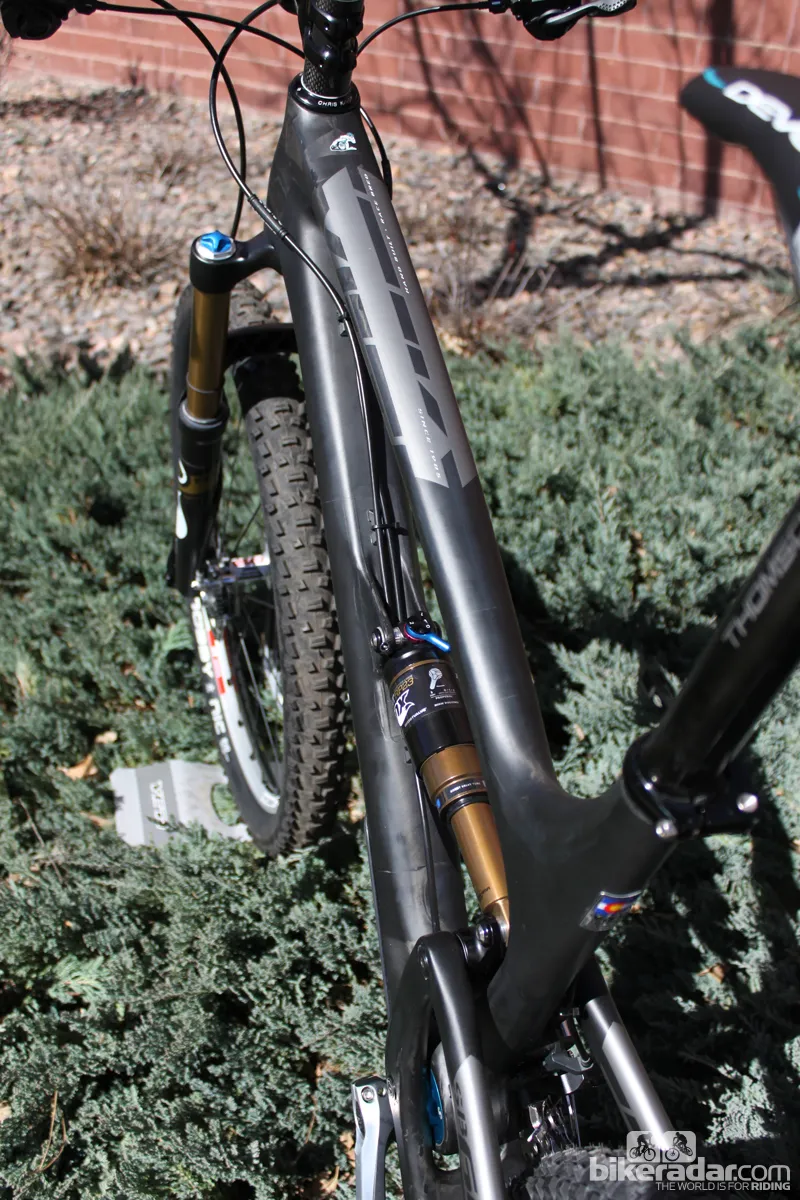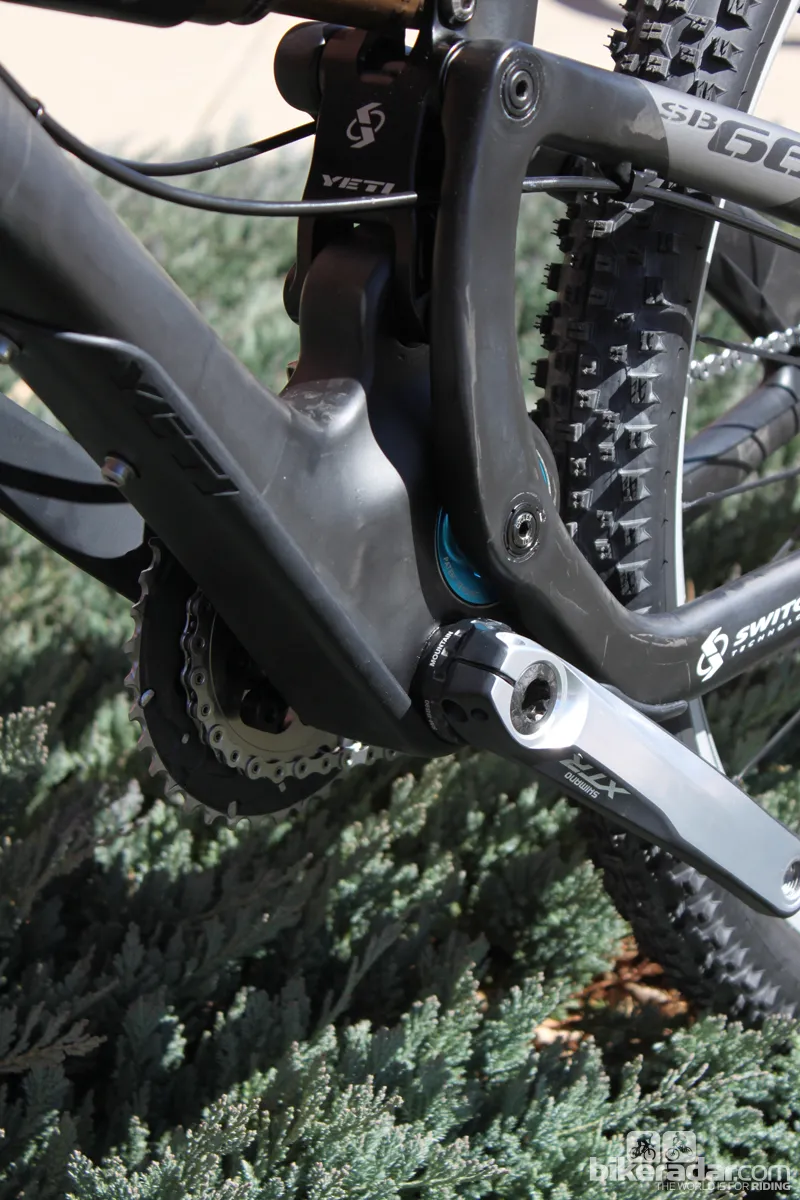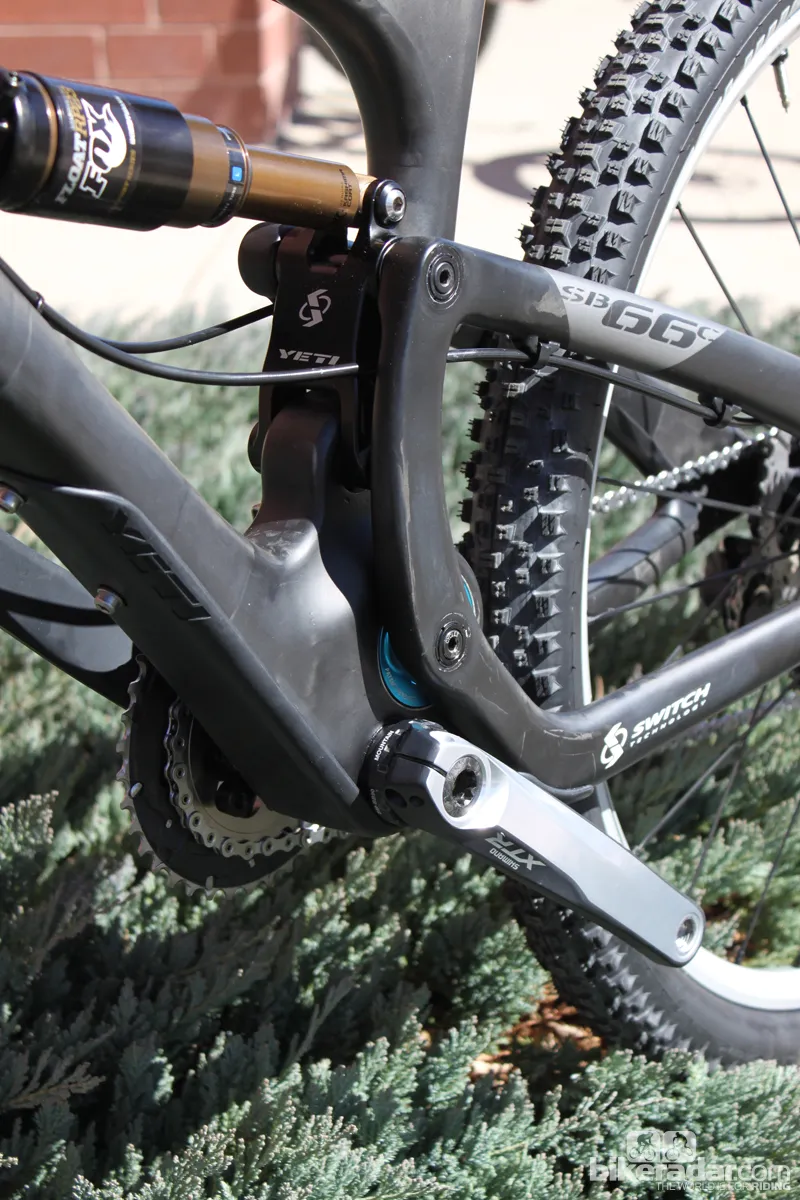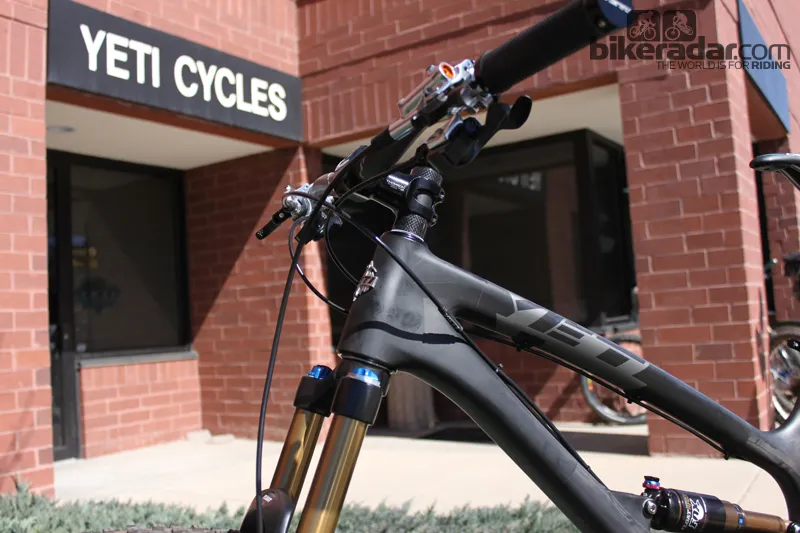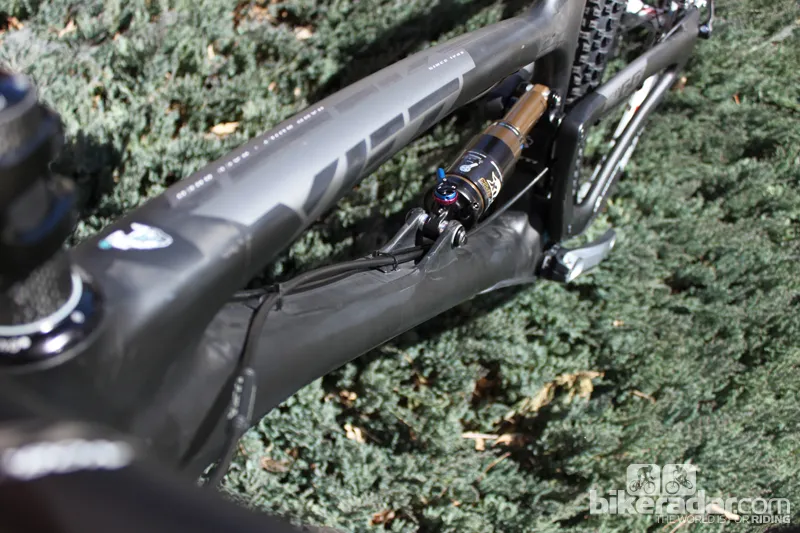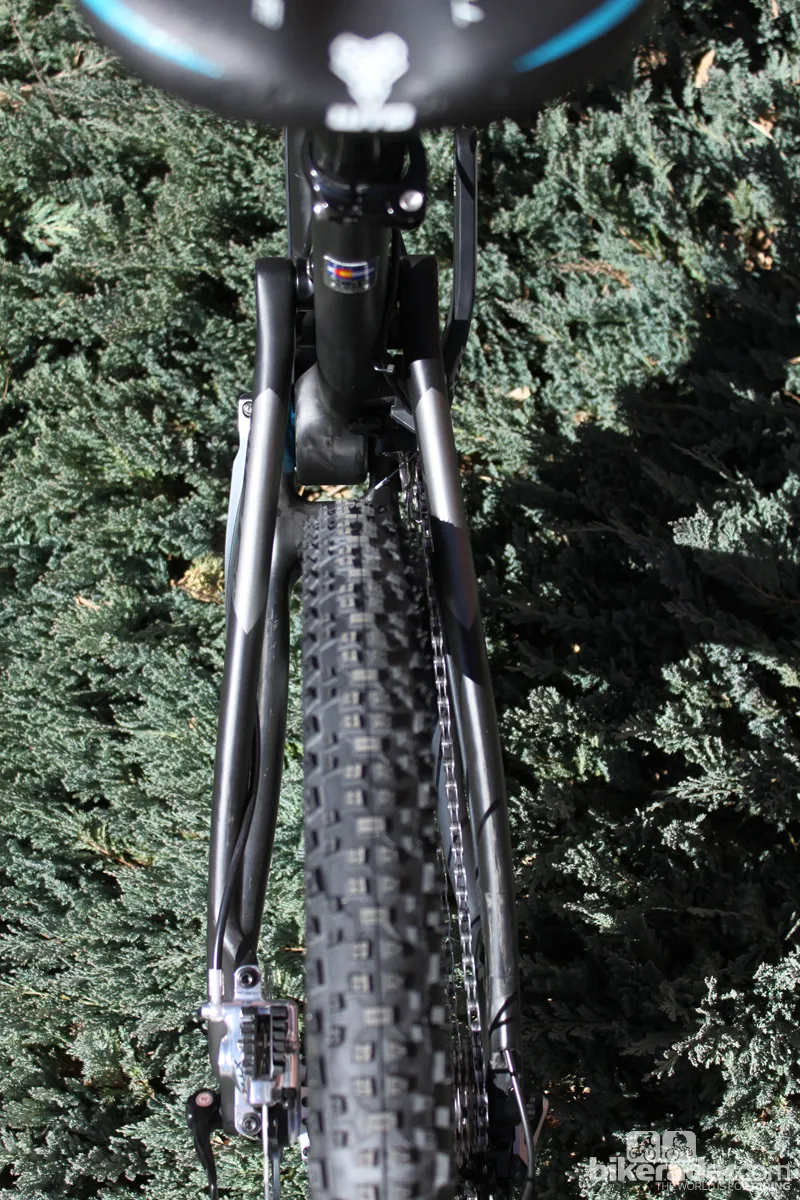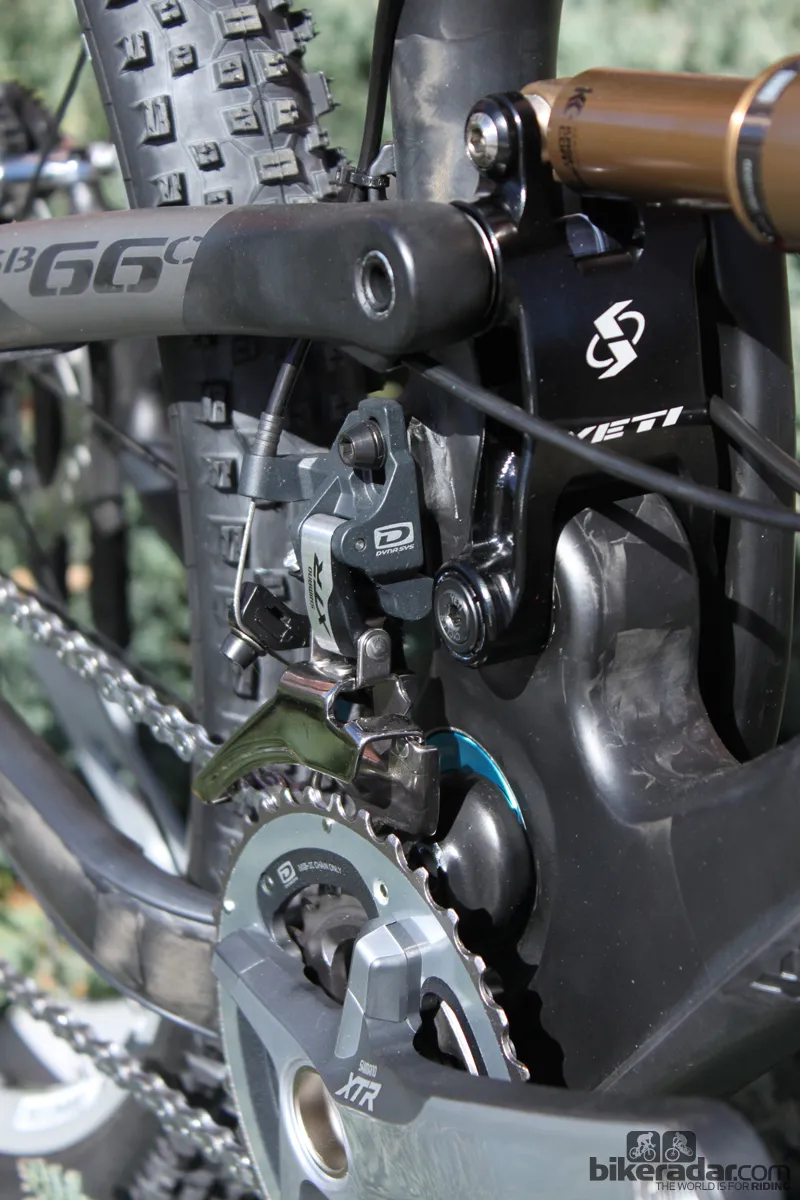We knew it was coming – a carbon fiber version of the SB-66 trail bike launched last year – and though it's late, Yeti have only missed their original delivery mark by about three weeks. Not bad for a bike with two years' R&D and huge hype surrounding it.
The Golden, Colorado based company are due to take delivery of their first full shipment of medium and large sized frames this at the beginning of April, which will ship to dealers and to fill pre-orders soon thereafter; Yeti estimated the third week of the month. Pricing is set at $3,000 (£2,600) – $750 (£600) more than the alloy original.
The SB-66 C uses the same geometry as the aluminium bike – a 67° head angle (with 150mm-travel Fox 32 fork), 17.1in/434mm chainstays and 13.4in/340mm bottom bracket height – and the same Switch Link suspension design, but both the front and rear triangles are built from high-modulus carbon, with key areas (for example the top, head and down tubes) moulded as a single section and then bonded together.
The new chassis also incorporates additional upgrades: smaller 15mm pivot axles with Enduro Max angular contact bearings and collet-style captive hardware. (The alloy bike was originally built with 15mm top and 17mm bottom axles and standard cartridge bearings.) Yeti's stated aim with the material and pivot upgrades was to reduce weight and improve ride quality, and they've certainly hit their first target.
The SB-66 C has a claimed weight of 6lb (2,721g, medium size), which is down 1.5lb from the alloy version. The medium size test bike shown here weighs 25.5lb (11.56kg), without pedals. That's very good for a 6in-travel (152mm) bike with a quality but not super-light spec (Fox 32 150 RLC fork and RP23 shock, Shimano XTR, DT Swiss M1700 Tricon wheels). So how does it perform out on the trail? Look out for a first ride review on BikeRadar soon.
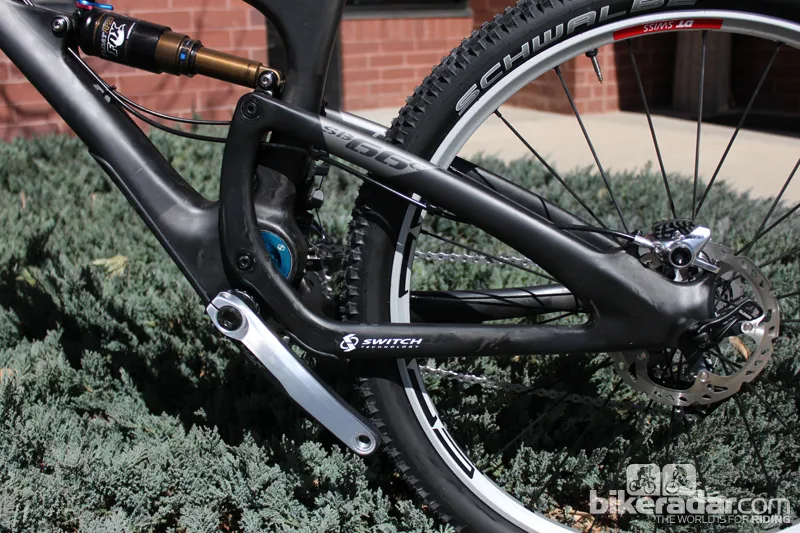
What’s it meant to do?
During our introduction to the SB-66 C we asked Yeti co-owner Chris Conroy to pigeonhole the new bike for us. Is it the stiffer, burlier version of the SB-66 platform, a la Santa Cruz's Nomad Carbon, or is it meant to be lighter and more category blurring (between cross-country and trail), like Ibis’s Mojo SLR? He declined to directly answer our question, though he did say: "I don’t expect we’ll sell too many with [Fox] 36s."
It seems that Yeti are expecting the new bike to woo those most concerned with weight. We, however, are looking forward to seeing how well the bike swings the other way – single ring (the SB-66 C has ISCG tabs); bigger fork; stiff, wide wheels; and nice big, forgiving tires – especially as it should come in at roughly the same weight the alloy version posts when built with the light stuff.
